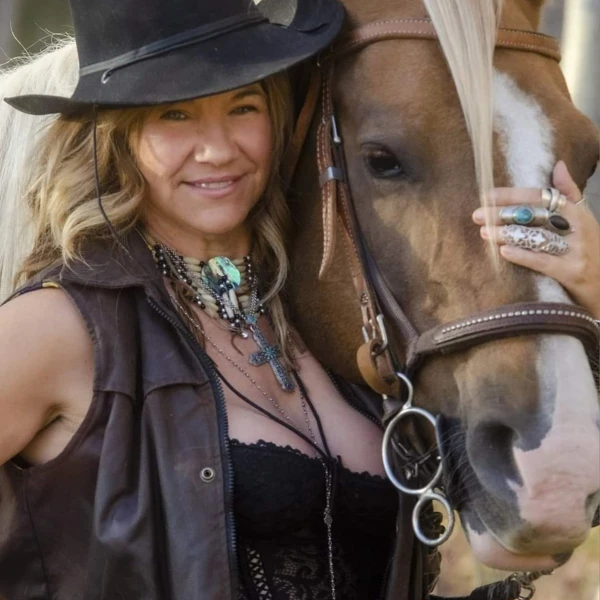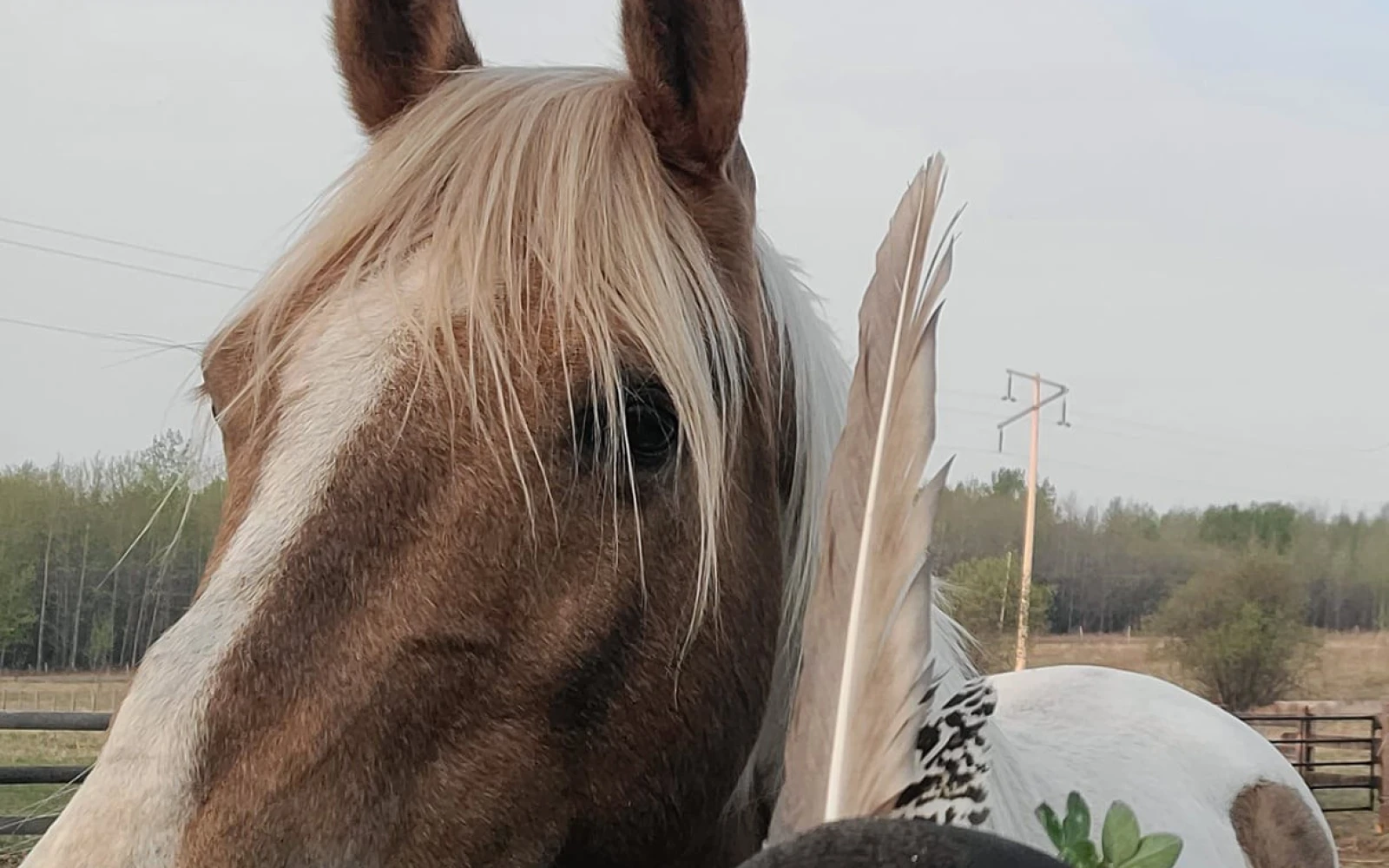Equine Assisted Learning (EAL) programs have emerged as a powerful and innovative approach to cultivating leadership skills in individuals and teams.
This unique methodology harnesses the innate qualities of horses to provide profound insights into human behaviour, communication, and leadership dynamics. By engaging with these majestic animals, participants are challenged to step outside their comfort zones and develop a heightened sense of self-awareness, emotional intelligence, connectedness, interpersonal effectiveness, and—ultimately—success.
The transformative nature of EAL lies in its ability to create experiential learning opportunities that transcend traditional classroom-based leadership training. As participants interact with horses, they are forced to confront their own strengths, weaknesses, and blind spots in real-time. This immediate feedback loop allows for rapid personal growth and skill development, making EAL an incredibly effective tool for leadership enhancement.
Moreover, the non-verbal communication required when working with horses encourages individuals to hone their ability to read and respond to subtle cues, a crucial skill in any leadership role.
Key Takeaways
- Equine Assisted Learning (EAL) programs offer unique benefits for leadership training
- Horses can enhance leadership skills through their ability to provide immediate and honest feedback
- EAL provides a powerful and impactful approach to leadership development
- The impact of EAL in leadership development is being explored in Canada
- EAL harnesses the benefits of working with horses to cultivate successful leadership qualities
Harnessing the Benefits of EAL in Leadership Training
Equine Assisted Learning offers a myriad of benefits that can significantly enhance leadership training programs. One of the primary advantages of EAL is the development of authentic leadership styles.
Horses are highly sensitive to human emotions and intentions, requiring participants to be genuine and congruent in their actions and words.
This authenticity fosters trust and respect, essential components of effective leadership. Furthermore, EAL promotes the cultivation of emotional intelligence, a critical attribute for successful leaders.
- Through interactions with horses, individuals learn to manage their own emotions, empathize with others, and navigate complex interpersonal dynamics.
- This heightened emotional awareness translates directly to improved team management and conflict resolution skills in the workplace.
- EAL experiences often lead to increased self-confidence and assertiveness.
- Participants are empowered to take on leadership challenges with greater poise and determination.
Exploring the Impact of Equine Assisted Leadership Development in Canada
In Canada, equine assisted leadership development programs have gained significant traction as a valuable tool for leadership training across various industries. Organizations ranging from corporate entities to non-profit institutions have embraced this innovative approach, recognizing its potential to cultivate well-rounded and effective leaders. The Canadian landscape provides an ideal backdrop for EAL programs, allowing participants to connect with nature while developing their leadership skills.
Canadian businesses that have incorporated EAL into their leadership development initiatives have reported notable improvements in team cohesion, communication, and overall organizational performance. The experiential nature of these programs resonates particularly well with Canadians.
As a result, EAL has become an integral part of many leadership development curricula throughout the country, contributing to the growth of more empathetic, adaptable, and resilient leaders in the Canadian workforce.
How Horses Can Enhance Leadership Skills
Horses possess a unique ability to mirror human behaviour and emotions, making them invaluable partners in leadership development.
Their size and power demand respect and clear communication, forcing participants to embody the qualities of an effective leader. Through various exercises and interactions with horses, individuals learn to project confidence, maintain composure under pressure, and communicate their intentions clearly and consistently.
Moreover, horses are naturally attuned to non-verbal cues, requiring participants to develop their own non-verbal communication skills. This heightened awareness of body language and subtle gestures translates directly to improved leadership presence and the ability to read and respond to team dynamics effectively.
Additionally, the unpredictable nature of working with horses challenges individuals to think on their feet, adapt to changing situations, and make quick decisions—all essential skills for successful leadership in the business environment.
The Unique Approach of EAL in Leadership Development
Equine Assisted Learning stands apart from traditional leadership training methods due to its experiential and immersive nature. Unlike classroom-based programs that rely heavily on theoretical concepts, EAL provides participants with immediate, tangible feedback on their leadership style and effectiveness.
This real-time learning experience allows individuals to make adjustments and improvements on the spot, accelerating their personal growth and skill development.
Furthermore, the non-judgmental nature of horses creates a safe and supportive environment for participants to explore their leadership potential. Free from the biases and preconceptions often present in human interactions, individuals can authentically express themselves and experiment with different leadership approaches.
This freedom to explore and make mistakes without fear of criticism fosters a growth mindset and encourages participants to push beyond their perceived limitations, ultimately leading to more confident and capable leaders.
The Potential of EAL for Leadership Development
As organizations continue to recognize the value of EAL programs, the potential for this innovative approach to transform leadership training is immense. By integrating EAL into existing leadership development programs, companies can create a more holistic and impactful learning experience for their employees.
The combination of traditional leadership theory with the experiential learning provided by EAL can result in more well-rounded, emotionally intelligent, and effective leaders.
Looking to the future, the applications of EAL for personal and group development are likely to expand. Educational institutions, government agencies, and non-profit organizations can all benefit from the unique insights and skills developed through EAL programs.
As more research is conducted on the long-term effects of this approach, it is expected that EAL will become an increasingly integral part of leadership development across various sectors, contributing to the cultivation of more empathetic, adaptable, and inspiring leaders in our society.
About the Author
Shawna‑Marie is a horse‑raised educator and certified Equine Assisted Learning facilitator through Equine Connection. As a former classroom teacher with degrees in Special Needs and Education Leadership, she blends ranch‑born grit and horse wisdom to guide personal and leadership growth through hands‑on equine experiences. Find out how horse wisdom can support your goals—contact Shawna-Marie or explore our programs for more.


